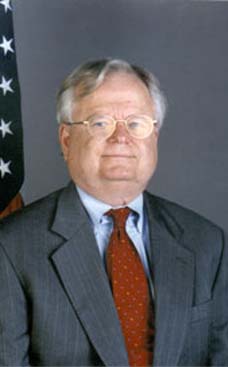2007.09.22: September 22, 2007: Headlines: Figures: COS - Jamaica: Photography: San Luis Obispo Tribune: RPCV Bill Owens got to know the landscape of the Bay Area by working as a photographer for a Livermore newspaper
Peace Corps Online:
Directory:
Jamaica:
Special Report: Photographer and Jamaica RPCV Bill Owens:
2007.09.22: September 22, 2007: Headlines: Figures: COS - Jamaica: Photography: San Luis Obispo Tribune: RPCV Bill Owens got to know the landscape of the Bay Area by working as a photographer for a Livermore newspaper
RPCV Bill Owens got to know the landscape of the Bay Area by working as a photographer for a Livermore newspaper

As a young man, Owens, who turns 69 on Tuesday, had great plans, taking up his camera after a stint in the Peace Corps. “I wanted to change the world,” he said from his non-suburban home in Hayward during a telephone interview. “I wanted to be an artist,” he continued, but it didn’t pay the bills. “It’s crazy to be any kind of an artist, period,” he added. So he sold most of his equipment in 1982 and tucked his photos away for nearly 10 years, until a friend persuaded him to bring them back into the public eye. But what didn’t pay off financially in those lean years has paid off in respect. His photographs have been linked aesthetically to those of documentary photographer Diane Arbus as well as to Raymond Carver’s short stories and Edward Hopper’s paintings.
RPCV Bill Owens got to know the landscape of the Bay Area by working as a photographer for a Livermore newspaper
A slice of suburban life
Bill Owens got to know the landscape of the Bay Area by working as a photographer for a Livermore newspaper. The result was the acclaimed ‘Suburbia’
By Lee Sutter
Astride a tricycle, a scowling boy with a buzz haircut totes a toy rifle. A living room decked out for Christmas, with Ronald Reagan on the television screen. A mother spoon-feeding her baby on a kitchen counter, huge power lines visible through the back window. Everyday scenes.
These images and dozens more make up “Suburbia,” the early 1970s photographs and book of the same name by Bill Owens, whose work influenced a generation of photographers. The show, chronicling suburban life three decades ago in the Bay Area, opened last night at Cal Poly’s University Art Gallery.
Changing the world
As a young man, Owens, who turns 69 on Tuesday, had great plans, taking up his camera after a stint in the Peace Corps.
“I wanted to change the world,” he said from his non-suburban home in Hayward during a telephone interview. “I wanted to be an artist,” he continued, but it didn’t pay the bills.
“It’s crazy to be any kind of an artist, period,” he added.
So he sold most of his equipment in 1982 and tucked his photos away for nearly 10 years, until a friend persuaded him to bring them back into the public eye.
But what didn’t pay off financially in those lean years has paid off in respect. His photographs have been linked aesthetically to those of documentary photographer Diane Arbus as well as to Raymond Carver’s short stories and Edward Hopper’s paintings.
“I love Hopper,” Owens said. “I’m looking at a Hopper right now.” He believes, however, while the famous American painter and printmaker’s works portrayed the alienation of people, Owens’ photos demonstrate their unity.
Owens recalled seeing one of Hopper’s paintings some time ago and saying “Oh my God, this guy ripped me off.” Then he realized Hopper’s work was from 1926.
Learning disabilities
Owens never studied art and got a C in the only photography class he ever took. A dyslexic with attention deficit disorder, he did poorly in school long before either condition was identified as a learning problem.
But, Owens said, his family helped him overcome those obstacles. “My parents loved me,” he added. “If you’ve got that going for you, you’ve got it made.”
As a photojournalist for a newspaper in Livermore, where his “Suburbia” photos were shot, he was able to explore the community and meet and appreciate the residents, an opportunity he still treasures.
He later started microbreweries but has relinquished the business. “It’s a young man’s gig,” he said. Yet he remains fully engaged.
An American quest
He has just returned from what he termed “an epic journey across America,” traveling 21,000 miles in four months. On his trip, he observed “the homogenization of urban lifestyle,” primarily through franchise businesses at seemingly every highway or freeway exit.
Along the way, he was invited to stay with a number of strangers, which gave him a chance to “see the real America, people from all walks of life.”
Owens is also working on his memoirs, doing book tours, giving talks, making short humorous films and is considering opening a small distillery school. Plus, as president of the American Distilling Institute, he enjoys meeting entrepreneurs who share his passion for micro-breweries.
“It’s more fun than photography,” he said.
Links to Related Topics (Tags):
Headlines: September, 2007; RPCV Bill Owens (Jamaica) ; Figures; Peace Corps Jamaica; Directory of Jamaica RPCVs; Messages and Announcements for Jamaica RPCVs; Photography
When this story was posted in October 2007, this was on the front page of PCOL:





Peace Corps Online The Independent News Forum serving Returned Peace Corps Volunteers 
 | Senator Dodd's Peace Corps Hearings
Read PCOL's executive summary of Senator Chris Dodd's hearings on July 25 on the Peace Corps Volunteer Empowerment Act and why Peace Corps Director Ron Tschetter does not believe the bill would contribute to an improved Peace Corps while four other RPCV witnesses do. Highlights of the hearings included Dodd's questioning of Tschetter on political meetings at Peace Corps Headquarters and the Inspector General's testimony on the re-opening of the Walter Poirier III investigation. |
 | What is the greatest threat facing us now?
"People will say it's terrorism. But are there any terrorists in the world who can change the American way of life or our political system? No. Can they knock down a building? Yes. Can they kill somebody? Yes. But can they change us? No. Only we can change ourselves. So what is the great threat we are facing? I would approach this differently, in almost Marshall-like terms. What are the great opportunities out there - ones that we can take advantage of?" Read more. |
 | Paul Theroux: Peace Corps Writer
Paul Theroux began by writing about the life he knew in Africa as a Peace Corps Volunteer. His first first three novels are set in Africa and two of his later novels recast his Peace Corps tour as fiction. Read about how Theroux involved himself with rebel politicians, was expelled from Malawi, and how the Peace Corps tried to ruin him financially in John Coyne's analysis and appreciation of one of the greatest American writers of his generation (who also happens to be an RPCV). |
 | Dodd issues call for National Service
Standing on the steps of the Nashua City Hall where JFK kicked off his campaign in 1960, Presidential Candidate Chris Dodd issued a call for National Service. "Like thousands of others, I heard President Kennedy's words and a short time later joined the Peace Corps." Dodd said his goal is to see 40 million people volunteering in some form or another by 2020. "We have an appetite for service. We like to be asked to roll up our sleeves and make a contribution," he said. "We haven't been asked in a long time." |
 | Public diplomacy rests on sound public policy
When President Kennedy spoke of "a long twilight struggle," and challenged the country to "ask not," he signaled that the Cold War was the challenge and framework defining US foreign policy. The current challenge is not a struggle against a totalitarian foe. It is not a battle against an enemy called "Islamofascism." From these false assumptions flow false choices, including the false choice between law enforcement and war. Instead, law enforcement and military force both must be essential instruments, along with diplomacy, including public diplomacy. But public diplomacy rests on policy, and to begin with, the policy must be sound. Read more. |
 | Ambassador revokes clearance for PC Director
A post made on PCOL from volunteers in Tanzania alleges that Ambassador Retzer has acted improperly in revoking the country clearance of Country Director Christine Djondo. A statement from Peace Corps' Press Office says that the Peace Corps strongly disagrees with the ambassador’s decision. On June 8 the White House announced that Retzer is being replaced as Ambassador. Latest: Senator Dodd has placed a hold on Mark Green's nomination to be Ambassador to Tanzania. |
 | Peace Corps Funnies
A PCV writing home? Our editor hard at work? Take a look at our Peace Corps Funnies and Peace Corps Cartoons and see why Peace Corps Volunteers say that sometimes a touch of levity can be one of the best ways of dealing with frustrations in the field. Read what RPCVs say about the lighter side of life in the Peace Corps and see why irreverent observations can often contain more than a grain of truth. We'll supply the photos. You supply the captions. |
 | PCOL serves half million
PCOL's readership for April exceeded 525,000 visitors - a 50% increase over last year. This year also saw the advent of a new web site: Peace Corps News that together with the Peace Corps Library and History of the Peace Corps serve 17,000 RPCVs, Staff, and Friends of the Peace Corps every day. Thanks for making PCOL your source of news for the Peace Corps community. Read more. |
 | Suspect confesses in murder of PCV
Search parties in the Philippines discovered the body of Peace Corps Volunteer Julia Campbell near Barangay Batad, Banaue town on April 17. Director Tschetter expressed his sorrow at learning the news. “Julia was a proud member of the Peace Corps family, and she contributed greatly to the lives of Filipino citizens in Donsol, Sorsogon, where she served,” he said. Latest: Suspect Juan Duntugan admits to killing Campbell. Leave your thoughts and condolences . |
 | He served with honor
One year ago, Staff Sgt. Robert J. Paul (RPCV Kenya) carried on an ongoing dialog on this website on the military and the peace corps and his role as a member of a Civil Affairs Team in Iraq and Afghanistan. We have just received a report that Sargeant Paul has been killed by a car bomb in Kabul. Words cannot express our feeling of loss for this tremendous injury to the entire RPCV community. Most of us didn't know him personally but we knew him from his words. Our thoughts go out to his family and friends. He was one of ours and he served with honor. |
Read the stories and leave your comments.

Some postings on Peace Corps Online are provided to the individual members of this group without permission of the copyright owner for the non-profit purposes of criticism, comment, education, scholarship, and research under the "Fair Use" provisions of U.S. Government copyright laws and they may not be distributed further without permission of the copyright owner. Peace Corps Online does not vouch for the accuracy of the content of the postings, which is the sole responsibility of the copyright holder.
Story Source: San Luis Obispo Tribune
This story has been posted in the following forums: : Headlines; Figures; COS - Jamaica; Photography
PCOL39349
08




















